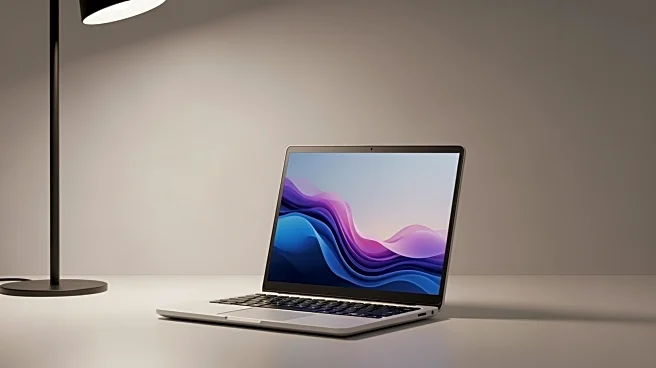What's Happening?
Chromebooks, which run on Google's ChromeOS, are increasingly popular as cost-effective alternatives to traditional laptops. They offer a lightweight operating system with minimal hardware requirements, making them suitable for basic work, school tasks,
gaming, and content creation. Chromebooks are generally less expensive than Windows laptops and MacBooks, with some models priced below $300. Modern Chromebooks have evolved significantly since their introduction in 2011, now featuring useful capabilities such as gaming and content creation, and can be used offline with apps like Netflix and Spotify. Chromebooks are not natively compatible with Windows or Mac software, but they can use progressive web apps and Android apps from the Google Play Store.
Why It's Important?
The affordability and simplicity of Chromebooks make them an attractive option for consumers looking to save money while still having access to essential computing functions. They are particularly appealing for educational purposes and remote learning, as they support Google Classroom and other web-based applications. Chromebooks also offer a viable solution for users who primarily operate within web browsers or use web and Android apps. The lower hardware requirements mean Chromebooks can be lighter, smaller, and have longer battery life compared to traditional laptops, making them ideal for users who prioritize portability and cost-effectiveness.
What's Next?
As Chromebooks continue to evolve, they are expected to integrate more Android features and improve app compatibility, enhancing their functionality and appeal. The introduction of Chromebook Plus models, which guarantee higher performance and features, indicates a trend towards offering more powerful Chromebooks at competitive prices. Consumers should be aware of the Auto Update Expiration date for Chromebooks, as non-Google hardware is only supported for a limited time before it stops receiving updates. This factor should be considered when purchasing new or used Chromebooks.
Beyond the Headlines
The rise of Chromebooks reflects a broader shift towards cloud-based computing and the increasing reliance on web applications. This trend is driven by the growing demand for affordable and efficient computing solutions that cater to the needs of modern users. As more consumers and educational institutions adopt Chromebooks, the market for these devices is likely to expand, prompting further innovation and development in ChromeOS and related technologies.
















